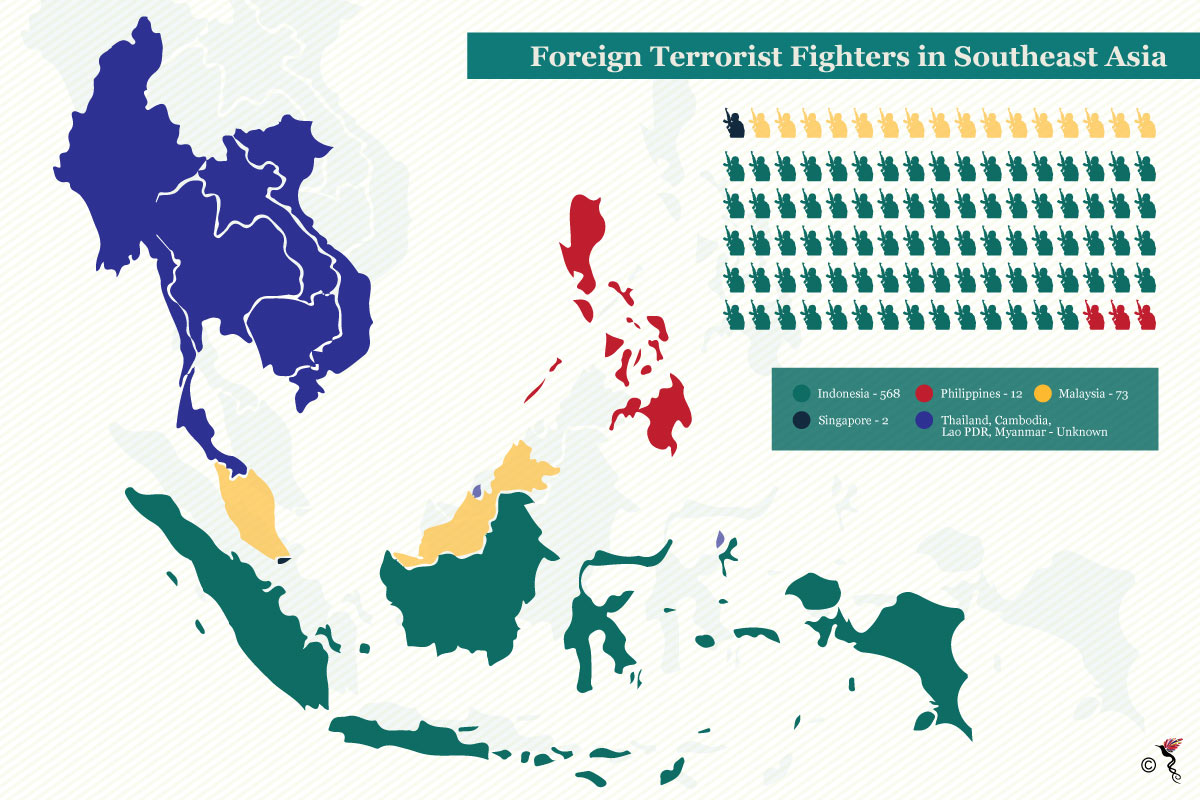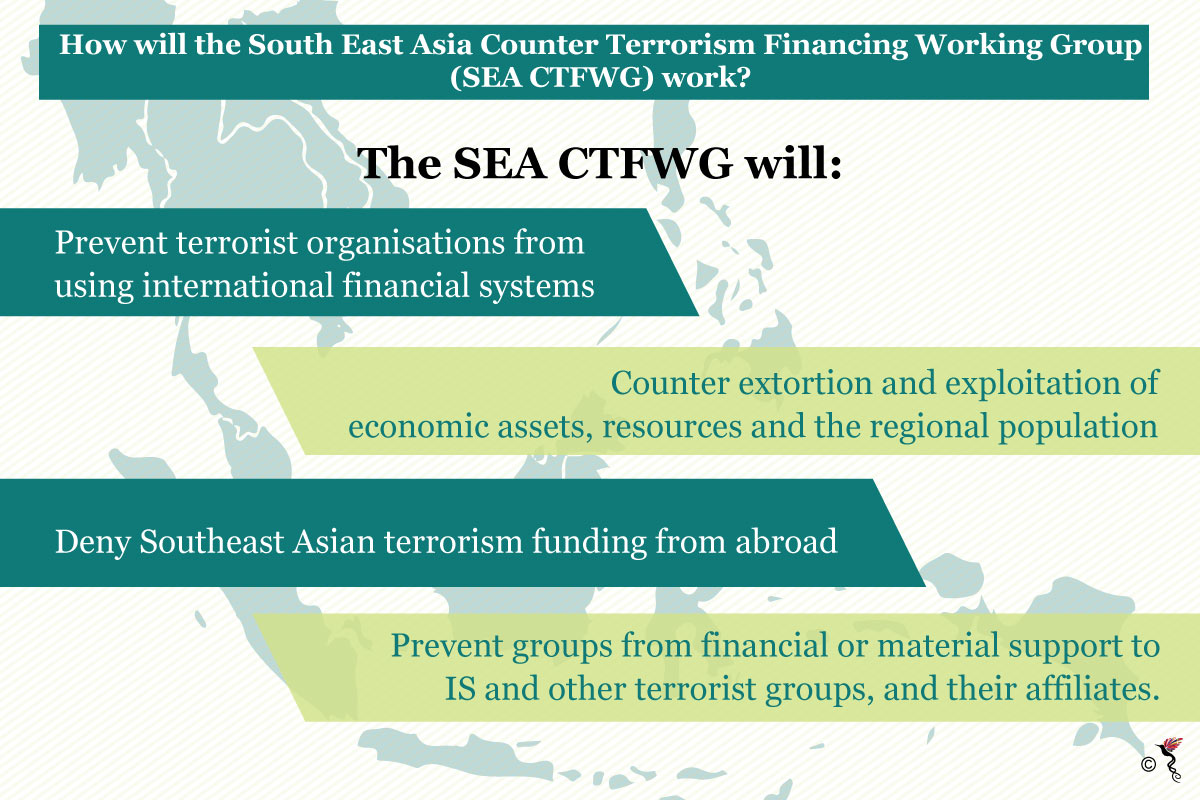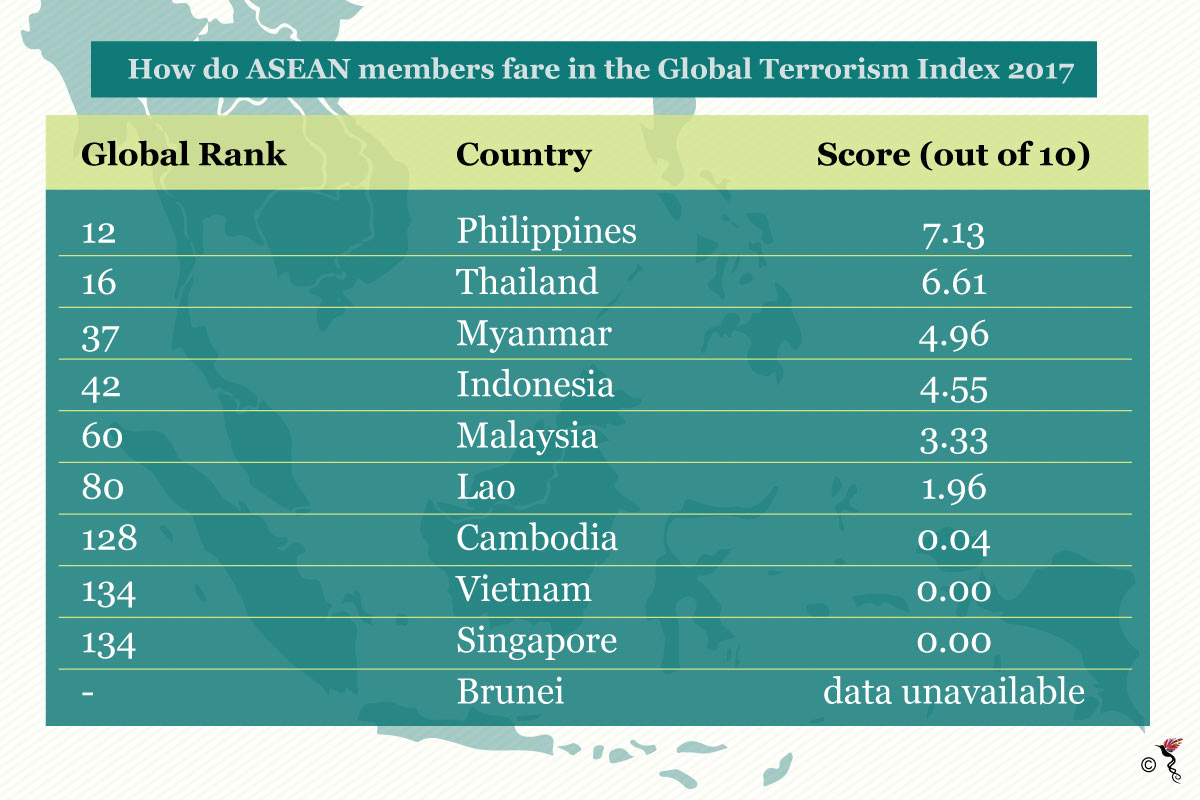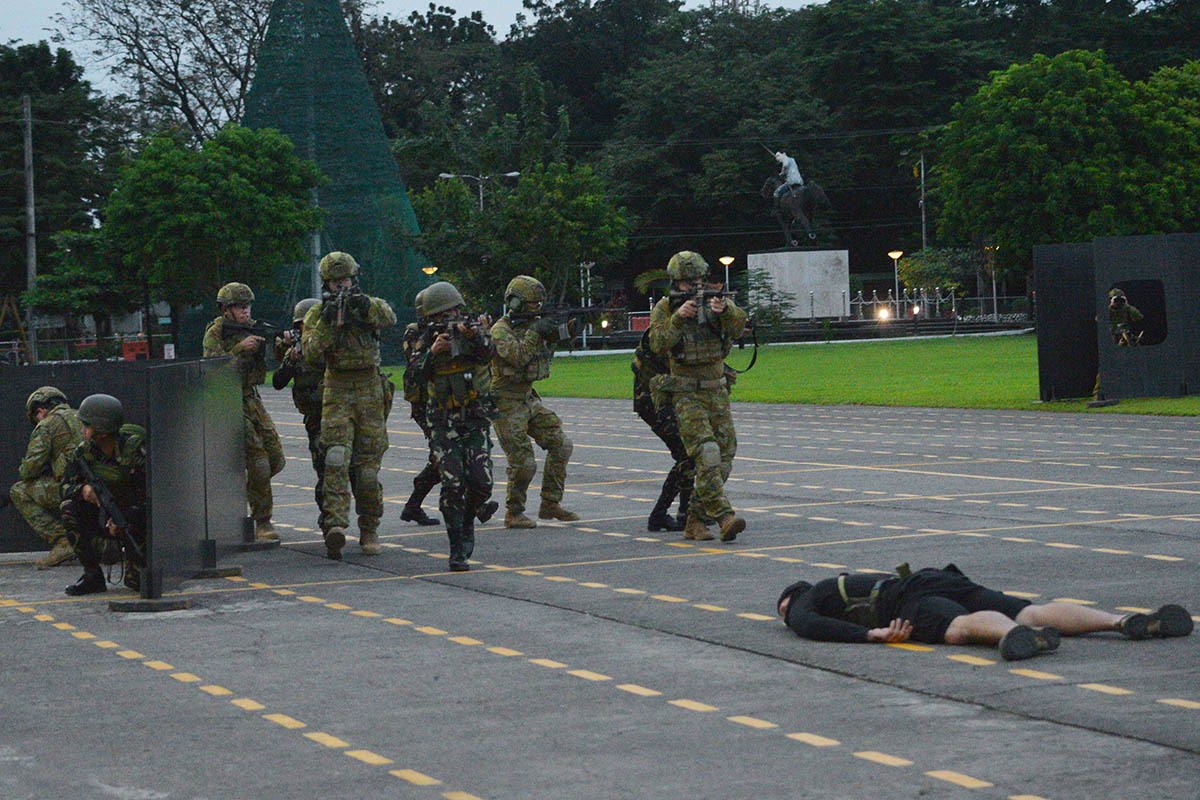On 23 September, the Islamic State (IS) Al-Hayat media wing released a three-minute propaganda video featuring radicalised Singaporean, Megat Shahdan Abdul Samad. In the video, he urged Muslims to wage religious war – or jihad – in East Asia and bring upon “black days” on “crusaders” here.
Shahdan’s deathly clarion call is a sign that the Islamic State’s influence is waning in the Middle East and the self-styled caliphate is looking to move away from its heartland where it has suffered huge defeats. Herein lies the greatest threat of modern day terrorism – that it can be exported with ease.
IS already has a strong foothold in the region and many Southeast Asian terror organisations like the Jemaah Islamiyah (JI) have pledged allegiance to its leader. However, the spread of IS’ brand of terrorism and the empowerment of its ideology to its intended audience comes at a monetary cost that must be borne by terror groups.

Foreign terrorist fighters in Southeast Asia
This is where the region’s latest effort to combat terrorism comes into action.
South East Asia Counter Terrorism Financing Working Group
On Wednesday, Australian Justice Minister Michael Keenan announced the establishment of the South East Asia Counter Terrorism Financing Working Group (SEA CTFWG) at a counter-terrorism summit in Kuala Lumpur.
The working group will aim “to disrupt terrorist groups, their sources of funding, the movement and use of funds and their economic sustainment in the region.”
Intelligence gathered via the initiative will be key in providing regional authorities and industry partners valuable insight into the movement and tracking of financial flows that go towards funding terrorist agendas. The insights can then be used to further reinforce the financial system from threats of terrorism financing.
It will be jointly led by the Australian Transaction Reports and Analysis Centre (AUSTRAC) and the Philippines Anti-Money Laundering Council (AMLC). The funding for its operations would come from the Australian government. Financing the SEA CTFWG is the first of a series of 3.5 million dollars (4.6 million AUD) to be doled out over the course of three years to support AUSTRAC and regional partners combat the threat of IS in the region.

How does the SEA CTFWG work?
Australia has been active in sharing intelligence on terrorism with other Southeast Asian countries for many years, however, Keenan said that such arrangements need to be institutionalised.
"We all know that the key weapon that we have in this war against terrorism is information. And we must find ways that it is shared seamlessly and shared in a timely way," he was quoted as saying by Agence France-Presse (AFP).
The importance of halting terrorist funding
Associate Professor at the National Defense College of the Philippines, Chester Cabalza, welcomed the newest efforts to combat terrorism financing.
“With the strategic lead of the Philippines and Australia, it elevates the already strong defence relationship between the two countries through the Status of Forces Agreement (SOFA) as it addresses terrorists’ financing issues that cut across Southeast Asia and Oceania,” he said in an email reply to The ASEAN Post.
Terrorism in Southeast Asia has been a longstanding problem with local militant organisations like JI and Abu Sayyaf group conducting terror activities around the region. However, their brand of terrorism, inspired by Wahhabism – an ultraconservative doctrine of Islam – has faced recent upsurge thanks to endorsement of their actions by IS.

How do ASEAN members fare in the Global Terrorism Index 2017?
The recent attempt by militants to seize the Philippine southern city of Marawi was, according to Philippine officials and analysts, part of the group's plan to establish a base in the region. Cabalza opined that the Marawi siege is proof that there exists a significant terrorist financial flow of resources.
“It should be halted. The Philippines has been struggling with the effective implementation of the Anti-Money Laundering Act (AMLA) that prevents and suppresses terrorists financing. The deficiency of the AMLA law can be substantiated with a stronger SEA CTFWG irrespective of the commitment of the ASEAN member-states and Australia since terrorism is considered an economic and transnational crime,” he said.
The transnational nature of terrorism makes it a threat which cannot be fought alone. Moreover, given that countries in this region have pledged to combat terrorism in all ways, shape and form, it makes ASEAN members targets of terror attacks. As such, only a concentrated attempt supported by countries across the region, would bear a fruitful end.
And the way to go is to hit them where it would hurt most – their wallets.
Recommended stories:
